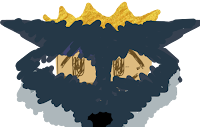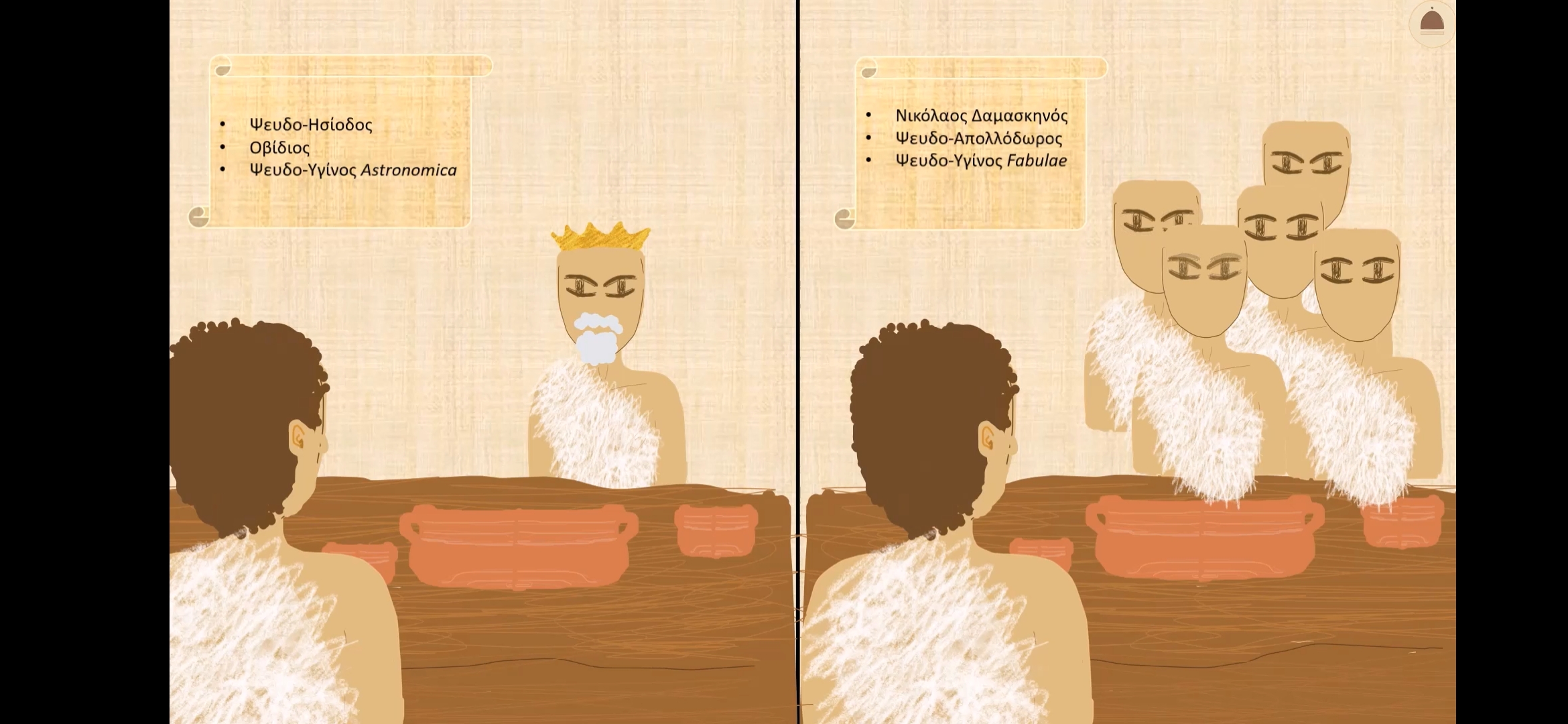The myth of Lykaon (historical context)

In the following post you can find more about:
a. The myth of Lykaon regarding his transformation into a wolf and the human sacrifice.
b. The legend of the sons of Lykaon expanding throughout Arkadia.
c. The possibility of pre-existing small myths which merged into some of the survived variations.
d. The precautions we need to take before assuming as historical the survived details regarding Lykaon.
Lykaon is perhaps the most famous legendary king of Arkadia. The reason for this are the myths surrounding his name. The myth of human sacrifice, the transformation into a wolf, and his impiety have drawn the attention, especially of those who seek to find connections between a wild land and its wild rulers. The human-sacrifice topic is quite controversial and, to date, no archaeological evidence can support that this myth is based on true facts.
♦️Do myths represent history?
-We can agree that myths include a fair portion of symbolism and we should be very careful in trusting them with our 'bare eyes', without analysing, comparing, and reading behind the words.
♦️Is it not possible that such sacrifices were once held in Arkadia?
-We are not in a position to answer and so this may also be a possibility.
♦️Do all variations refer to Lykaon as a king that performed human sacrifices?
-There are variations of the myth that clearly state that he did. There are others, though, that only repeat a known-to-the-ancient-audience story motif, that of the offering of human meal to someone. We may recall the stories of Astyages or Tantalus.
Thus, most of the variations of the myth of Lykaon speak about the cruel incident performed by him, him and his sons, or only his sons -depending on which characters each story wants to paint as arrogant and impious. The performers of this unspeakable act always get the punishment they deserve by Zeus. And it is almost like we are dealing with the regular 'human impiety - divine punishment' and the 'human problem - divine solution' stories which mostly appear on theatrical plays, tragedies in particular. In the video we observe which sources present Lykaon and which present the sons as the servers of the cruel meal.
We would be wrong to assume that the first ever form of the myth of Lykaon had such a complete plot and form, ready to be transferred to the stage. It is possible that the myth of transformation, and the myth of human sacrifice were not always part of the same myth, and that the first myth preceded in time the latter. In fact, the myth of the disgraceful human sacrifice would have served perfectly as an aetiological myth for the mysterious mythical incident of Lykaon's wolf metamorphosis at some point in antiquity, when the transformation myth did not make sense to the inhabitants of Arkadia.
In the video we have divided the stories into smaller episodes. We observe that each version of Lykaons myth, may or may not include some of the episodes or even all characters. We also observe that for the same episodes the protagonists performing an act vary The only episode that appears in all survived variations, is the cruel incident of human sacrifice. But even in this episode, neither the performer nor the victims are always the same.
Finally, Lykaon draws attention regarding the names of his sons. Lykaon founds the first city in Arkadia and the sons expand in his land, creating cities that are named after them. Today most of these names exist in our map. They are our parents' villages, our homes, the places we grew up and discovered as kids. It is natural that such myths enable our mind to view this story as an encapsulated story of the actual events of a distant past.
However, we must bear in mind that this myth of the king and his sons we all cherish once we read, is just one variation preserved by Pausanias, which refers to 28 sons. The testimony of the 50 sons, number who many of us recall when thinking of Lykaon's sons, belongs to the survived variation of Apollodorus, whose list of names is by no means unique in Arkadia, nor does it match with the names of the Arkadian cities. Note that according to Dionysios of Halikarnassos, the number of the sons was 22.
This allows us to think that the myth of a king with many sons, and the explanatory genealogical legend, could have also been two different stories in the past, before merged to one. Perhaps when the need for verifying the autochthony of the Arkadians was mandatory. Perhaps sometime when circumstances called for the creation of a pan-Arkadian memory, which we have also seen in the article about the kings of Arkadia here.
One more detail that implies a gap between the stories included in Lykaon's myth, as we shall see in the video, is the fact that the survived myth does not preserve any scenes of interaction between a) the sons of the king, and b) the daughter and grandson of the king, although we may find variations that include all characters in the story. Given the fact that king Lykaon is interacting with everyone, and due to his appearance in some of the variations of the myth of his daughter Kallisto, it is reasonable to think that the myth of sons, and the myth of the daughter and the grandson, were also two different stories/patterns/myths, merged into some of the variations of Lykaon's myth.
To sum up, the survived myth preserves too much info, but the variations allow us to distinguish smaller autonomous parts. It is safe to say that we cannot just read the legends around Lykaon as a simple historical narration, let alone, believe the legend of human sacrifice in early Arkadian without further research and stronger evidence.
All images ©️ 2020 arkadiantales.blogspot.com


